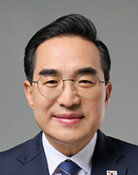Busan Taxi Fare Hike Signals Public Utility Inflation
Busan Taxi Fare Hike Signals Public Utility Inflation
Posted July. 29, 2008 03:18,
Public service rates are expected to rise across-the-board in the second half of the year, as several cities will raise taxi fares in the wake of the central governments announcement of higher public utility fees.
The rise in utility rates is feared to stoke consumer inflation and demands for pay raises, resulting in higher inflation.
A Busan city committee for containing inflation yesterday decided to increase the basic taxi fare 20.46 percent from Oct. 1. The fare will be 2,200 won from 1,800 won and 100 won will be added per every 142 meters and 34 seconds instead of 169 meters and 41 seconds.
The committee said, The taxi fare rise, the first in three years, is inevitable to improve management of the citys taxi industry and compensate losses from increases in liquefied petroleum gas prices.
Other regions are also reviewing raising taxi fares. They will decide the scope and timing of the hikes after listening to taxi unions.
The Daegu taxi union has demanded a 31-percent raise in the fare, that of Gwangju 33 percent and that of Ulsan 32.9 percent.
A Gwangju city official said, We will increase taxi fares either in November at the earliest or early next year at the latest.
Despite the central governments request to freeze public utility rates, more cities and regions are considering raising taxi fares due to mounting pressure from taxi drivers reeling from surging fuel prices.
Weve asked the central government twice to allow fare raises, an official from a regional government said. We cannot delay the raises indefinitely, so we will proceed with them regardless of the central governments permission, while keeping in line with other areas.
Seouls decision to raise utility rates has also prompted other areas to do the same.
The Busan committee will also raise gas prices for consumers from 645.71 won per cubic meter to 649.72 won, adjusting for wholesale inflation. Other cities such as Gwangju and Daejeon have agreed that gas hikes of five to 10 won per cubic meter are needed, but have yet to make final decisions.
The Knowledge Economy Ministry last week also hinted at raising heating costs following the announcement of higher gas and electricity costs. The ministry also said it will adjust briquette prices.
peacechaos@donga.com silent@donga.com






![[단독]“거부도 못해” 요양병원 ‘콧줄 환자’ 8만명](https://dimg.donga.com/c/138/175/90/1/wps/NEWS/IMAGE/2026/03/02/133450041.2.jpg)
